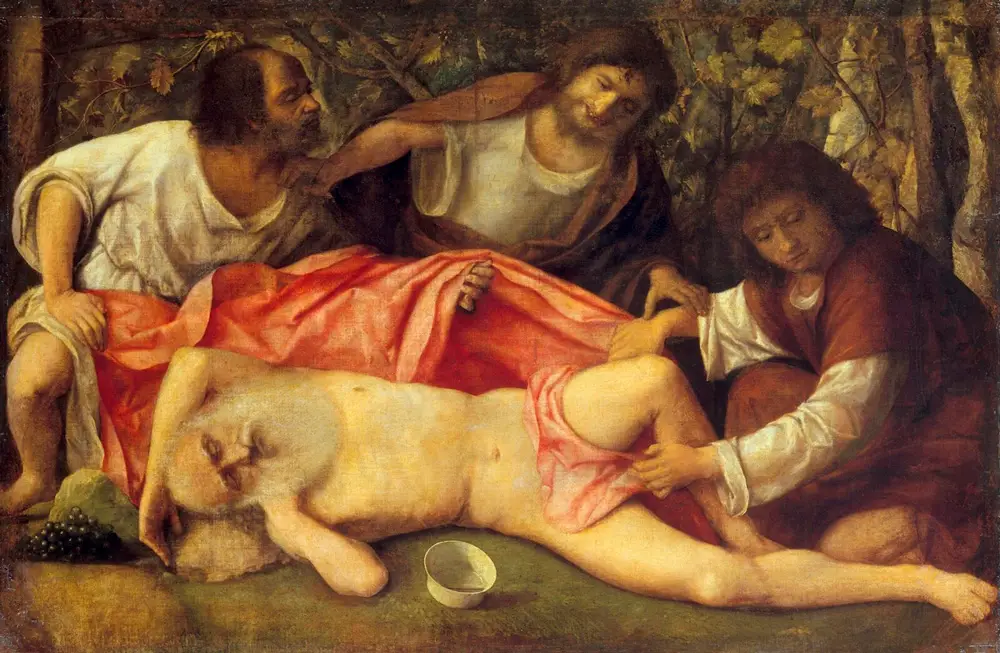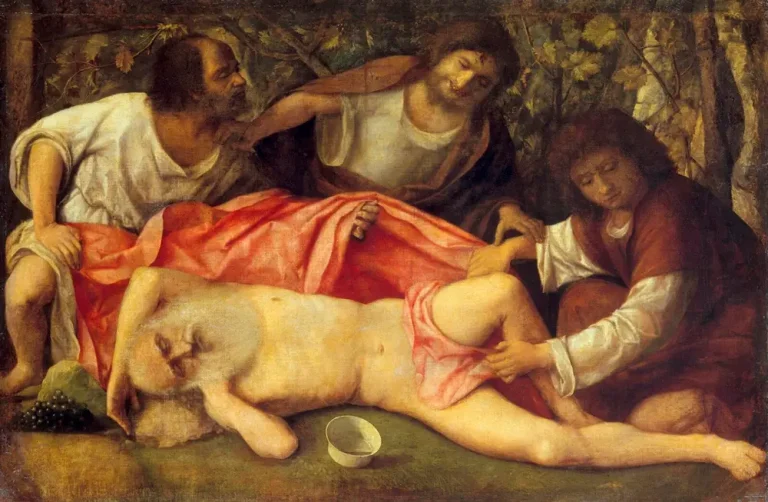
By Paul Ham
According to a report of an independent monitoring committee published in March 2024, the Church of England should pay £1 billion in reparations – 10 times the previously set amount – to descendants of slavery.
The report marks the beginning of a “multigenerational response to the appalling scourge of transatlantic slavery.” said Justin WelbyArchbishop of Canterbury and spiritual leader of the worldwide Anglican Communion of approximately 85 million Christians.
His words evoke the shocking spectacle of the 17th and 18th centuries, when the Church of England owned vast plantations in the Caribbean, mainly in Barbados, employing thousands of slaves. Slavery was seen as very much in keeping with the Christian message of bringing the gospel to “savages.” Christian leaders even referred to “their” slaves as “SPG” – the Society for the Propagation of the Gospel.
“Cursed be Canaan”
The Anglican Church is not alone: all major Christian denominations were deeply involved in the slave trade, as were major branches of Islam.
How could this be possible? How have religions supposedly dedicated to spreading the word of a compassionate and loving God become so closely involved in this “dreadful evil”? The answer is rooted in a grotesque use of the very words of the Bible. Of the many ways Christians have invoked the Bible to justify their actions, none has surpassed in cruelty and willful ignorance their appropriation of the “curse of Ham” to justify slavery.
Ham (no relation!) was the youngest son of the biblical patriarch Noah. When Ham saw his father drunk and naked, Noah felt so humiliated that he placed a curse on Ham’s son Canaan, condemning his descendants to perpetual slavery. Here is the moment, as recounted in Genesis 9:24-25 (New King James Version):
“Then Noah awoke from his wine and understood what his youngest son (Ham) had done to him. Then he said: “Cursed be Canaan. He will be the servant of the servants of his brothers.
The creation of a “slave race”
Since the 15th century, religious leaders have cited this passage to justify the slavery of all African people. For nearly 500 years, priests taught their flocks that a Hebrew prophet had condemned millions of Africans to slavery. because they were descended from Canaan, the son of Ham. The curse of Ham thus constituted the main religious justification for the transatlantic slave trade. The curse of Ham entered Islamic thought in the 7th century, under the influence of Christianity, and Medieval Muslim scholars drew inspiration from Noah’s curse in their works., as historian David M. Goldenberg has shown. The Quran, however, makes no mention of the curse and Muhammad’s farewell speech. rejects the superiority of whites over blacks.
According to this reading of Genesis, God not only ordained slavery, he also predestined blacks as a “slave race”. In fact, some Christian leaders claimed that it was in the best interests of Africans to be enslaved because their captivity would hasten their conversion, purifying and redeeming their souls in preparation for Judgment Day.
By handcuffing and rounding up millions of Africans on ships bound for the colonies, slave traders and their religious and government leaders convinced themselves that they were guiding “blacks” out of darkness and toward salvation.
Historian Katie Cannon describes the process in another way:
“Drunk with power and driven by grand illusions, government officials and leaders of slave trading corporations… succumbed to lies and manipulation that the salvation of their souls depended on the relentless reproduction of systemic violence. »
The Justification of African Slavery in America
The first written use of the curse of Ham to justify slavery appeared in the 15th century, when Gomes Eanes of Zuraraa Portuguese historian, wrote that the chained Africans he saw were in such a miserable state “because of the curse which, after the flood, Noah laid upon (Ham)…that his race should be subject to all other races of the world. the world”.
In 1627, an English author defending the slave trade wrote:
“This curse of being a servant was imposed, first on a disobedient Cham son (Ham), and we see even today that the Moores, Cham posterity, are still sold as slaves.”
In the American colonies, the curse of Ham served as a THE ideological justification for African slavery. Puritan colonizers in the New World purchased slaves in large numbers to transform Providence, Rhode Island, into a Christian “city on a hill.” All were considered the offspring of Canaan.
The moral obscenity of slavery was at the root of the American Civil War (1861-1865). Both camps inscribed God’s authority into their cause. In the south, this implied a literal reading of the curse of Ham. Sultry preachers from the South thundered that Noah’s condemnation of Canaan had condemned all Africans to slavery. An “almost universal opinion in the Christian world” affirmed that “the suffering and slavery of the black race were the consequence of the curse of Noah”. Alexander Crummell (1819-1898), African-American minister and academic educated at Cambridge, 1862.
Benjamin M. Palmer (1818-1902), pastor of the First Presbyterian Church of New Orleans and a prominent Mississippi clergyman during the Civil War, raged sermon after sermon asserting that Noah’s curse was a prophetic model of the destiny of ” whites.” , “black” and “red” races. While the white descendants of Shem and Japheth (Noah’s eldest sons) would prosper and succeed, Palmer asserted that “(upon) Ham was pronounced the doom of perpetual servitude…”.
An important reference in the Civil War
During the early months of the Civil War, bigotry and high-ranking superstitions cloaked the South in a biblical defense of slavery. Southern Catholics also eagerly cited this curse as a validation of slavery. On August 21, 1861, Bishop Augustus Marie Martin of Natchitoches, Louisiana, stated in a pastoral letter: “On the occasion of the Southern War of Independence”that slavery was “the manifest will of God”, and that all Catholics must tear “from the barbarity of their ferocious customs thousands of children of the race of Canaan”, the cursed offspring of Ham.
All this was a biblical balm for slave traders and owners who feared for the salvation of their souls. The religious justification for slavery erased these concerns.
Aside from theologians’ misuse of Genesis, even on its own terms, the Curse of Ham was a vague and unconvincing argument for slavery. Nowhere in Genesis is there a curse on Africans or dark-skinned people.
If slave traders needed explicit biblical endorsement of slavery, they could have turned to the New Testament, where we find St. Peter telling slaves: “Be subject in all fear to your masters, not only to the good and the gentle, but also to the harsh”. Or again Saint Paul, who exhorted slaves to “obey with fear and trembling those who are your masters according to the flesh”.
Come abolitionism
Abolitionists did not remain silent in the face of this grotesque interpretation of Christianity’s most sacred text. In a Speech of July 5, 1852Frederick Douglass, the great anti-slavery activist and politician who himself had escaped from his “owner”, delivered this response to those who peddled the curse of the ham from their pulpits:
“(The) Church of this country is not only indifferent to the wrongs of the slaves, but actually takes the side of the oppressors. He made himself the bulwark of American slavery and the shield of American slave catchers… They taught that man can rightly be a slave; that the relationship of master and slave is ordained by God…”
And all this is based on a misinterpretation of Genesis 9:24-25 by the pro-slavery “Divines”, who have thus transformed their religion into an engine of tyranny and barbaric cruelty. It was a sham and a lie, and everything but what Christianity was supposed to represent.
![]()
Paul Ham is a lecturer in narrative history at the Paris Institute of Political Studies (Sciences Po).
The conversation was born out of deep-seated concerns about the declining quality of our public discourse and recognition of the vital role that academic experts could play in the public space. Information has always been essential to democracy. It is a societal good, like drinking water. But many now find it difficult to trust the media and experts who have spent years studying a topic. Instead, they listen to those with the loudest voices. These ill-informed opinions are amplified by social media that rewards those who spark outrage instead of thoughtful thought or discussion. The Conversation seeks to be part of the solution to this problem, to elevate the voices of true experts and make their knowledge available to everyone. The Conversation publishes nightly at 9 p.m. on FlaglerLive.



